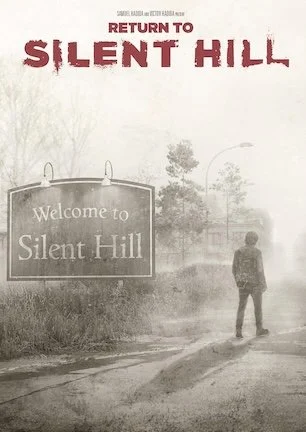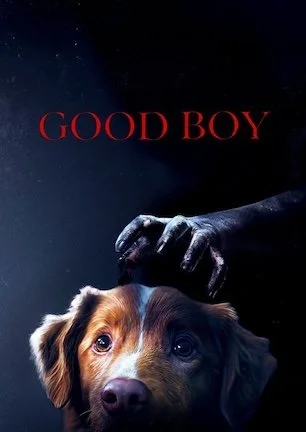Studio: 1091 Pictures
Director: Perry Blackshear
Writer: Perry Blackshear
Producer: Perry Blackshear, Evan Dumouchel, MacLeod Andrews, Libby Ewing
Stars: Libby Ewing, Evan Dumouchel, MacLeod Andrews
Review Score:
Summary:
Siblings haunted by their struggles with addiction confront another kind of demon when they’re hunted by a supernatural stalker.
Review:
Writer/director Perry Blackshear’s first feature “They Look Like People” (review here) rocketed up the rungs of horror’s microbudget mumblecore ladder when it debuted in 2015. Blackshear turned minimalist mood into a meaty meal through suggestively suspenseful interactions between two emotionally vulnerable men. A pared-down paranoia play formed on a firm foundation of uneasy atmosphere, “They Look Like People” remains a top-tier trip into indie filmmaking that’s efficient, economical, and entertaining without relying on experimental abstraction to qualify as artful.
Blackshear’s sophomore effort “The Siren” (review here) borrowed from the same toolbox “They Look Like People” used to build its thematically-rich thrills, yet “The Siren” smacked into the typical arthouse hurdles “They Look Like People” leaped. Less focused and less forceful, this follow-up wobbled into meaningless meandering that shortchanged the dreamy love story’s intended impact. The film vainly hoped it might stumble into significance if it kept wandering from scene to scene while audience interest waned. The former didn’t happen although the latter definitely did.
With two vastly different outcomes on his first two outings, would Perry Blackshear’s third feature prove to be closer to the tamer tone of “The Siren” or a satisfying spiritual successor to “They Look Like People?” I’m relieved to report that Blackshear’s brand of intangibly implied insidiousness is back on track with welcome weirdness capable of worming its way into any susceptible psyche.
“When I Consume You” starts so suddenly, I double-checked the position on the playback bar to make sure I hadn’t accidentally advanced to the middle of the movie. Daphne Shaw, a recovering addict with a problematic past, pulls a bloody tooth out of her mouth after undergoing an unseen beatdown. It’s a private bit of painful dentistry because she doesn’t want her brother Wilson to worry. Prone to panic attacks and currently struggling to find a better job, Wilson has his own issues to deal with.
After Daphne’s bathroom bandaging, three actor names appear onscreen. The title soon follows. There are no other opening credits or text. Spartan style holds the film in place as proceedings pull back to establish the relatable real world where these two siblings reside.
“When I Consume You” makes its mood by basically “being there” to capture organic moments. Also acting as cinematographer, Perry Blackshear operates an honest camera while choosing creative angles that aren’t showy. He’ll keep a respectful distance so we see Wilson and Daphne whispering without hearing them, teasing a vague voyeur element where we aren’t always allowed all the way in on every conversation between brother and sister. The tricky simplicity in such setups creates subtle effects like this even though the lens deceptively appears to only be interested in recording normal activities.
“When I Consume You” takes place in a corner of New York that’s far from landmarks like Times Square and whose skyline doesn’t include a famous building or bridge. Its average landscape has that “Fessenden Feel.” It’s a blue-collar locale dotted with bodegas and delis, populated by ordinary people the rest of the world rarely notices. This urban bohemia contributes to an arthouse-adjacent setting without having the stunted stuffiness of a slow-burn period piece.
By continuing to concentrate on a small number of characters, in this case three, Blackshear opens a space for his actors to shape personalities through behaviors and expressions that can’t be communicated with words. Combined with the camera’s casualness, laid-bare performances and raw visuals create truthful textures for these people. Blackshear never injects artificial emotion with anything as explicitly obvious as a close-up on someone crying while melancholy music moans underneath. In one instance, the camera follows Wilson from behind as he walks dejectedly away from a job interview that didn’t even allow him in the door. Slumped shoulders say everything. Blackshear trusts his cast and his viewers to know we only need glimpses of internalized pain to see the fractures widening on these sadly broken people.
That trust extends to “When I Consume You’s” comparatively adult take on supernatural specters. You won’t find black-eyed phantoms dropping exaggerated jaws to shout “boo!” here.
MINOR SPOILER
Plot isn’t as critical as purpose where “When I Consume You” is concerned, although the film still has both. The throughline follows Wilson and Daphne fighting against a literal demon who is emblematic of the figurative ones they’ve battled since childhood in the form of depression, drug abuse, and suicidal ideation. That demon takes Daphne’s life, but her spirit returns to help Wilson summon the strength to continue the crusade that might bring them both peace.
At first, it feels like a cheap cheat when Blackshear presents Daphne’s ghost no differently than when she was alive. Blackshear did the same thing with the sea nymph in “The Siren” by opting against any mermaid-esque FX, and she was received with a flat reaction reflective of her uninteresting look. It’s a theater technique often used when there’s no money to make up a person into an otherworldly entity or human-animal hybrid. But the understanding that accompanies the intimacy of an actor-audience transaction in that situation doesn’t translate to a cinematic medium driven by imagery.
Here however, it does. I found myself able to appreciate this second attempt at “implied transmogrification” in “When I Consume You” when I couldn’t with “The Siren” because it makes more sense for what’s being communicated. Blackshear believes a smart audience will quickly accept the notion that Daphne is disembodied without doing anything to outwardly illustrate it. That’s because he knows we realize it’s the concept that’s important, not what her ghost looks like. Her “plain phantom” presence takes some getting used to, as Daphne’s post-corporeal form makes for maybe the strangest “Rocky” training montage ever seen. But Daphne’s ghost is only one link in a longer chain, not the steel binding the story together.
END SPOILER
Despite the status described, “When I Consume You” doesn’t quite slot into the previously identified description for arthouse ambiguity. Some holes are deliberately left for viewers to fill in, which may frustrate anyone anxious for specifically spelled-out explanations. The majority of metaphors are crystal clear however (except everything pertaining to the scene with Daphne’s co-worker Dani), and any interpretation anyone wants to apply is easy to come to.
This goes for any movie that can be called minimalist, microbudget, or mumblecore/mumblegore, but doubly so for a film that’s all three. “When I Consume You” isn’t going to be everyone’s speed, in part because it runs at a variable one that’s not lightning quick. But the surgically skillful way in which Perry Blackshear transcribes grounded fears into film form is currently unmatched in auteur indie cinema. He’s found the right balance between introspective expression and traditional chills once again, and that’s a highly exciting prospect for fans of horror films hailing from the dark underside of psychological dread.
Review Score: 75






It would be less hyperbolic to simply say “Whistle” is the most cliché-riddled thriller of 2025 and 2026 at a minimum.